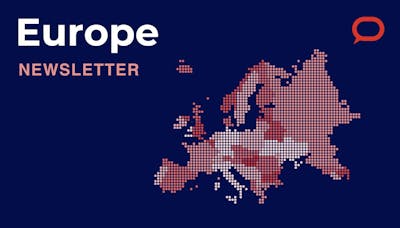
In recent years, rare earth elements have become the focal point of renewed competition between the world’s major powers. These materials are crucial to the manufacture of all manner of products, ranging from weapons to medical products, AI hardware and cars.
In this new panorama, the United States and Europe are at a disadvantage, as China controls as much as 90% of the global trade in rare earths. This is largely because it has been quietly but continuously promoting the extraction and refining of these raw materials for decades.
As early as the 1950s China began mining the Bayan Obo deposit in Inner Mongolia, which is now the world’s largest rare earth mine. By the 1990s it had significantly increased its investments to become the world leader in production and refining. Today, the PRC extracts these raw materials both within its own borders and in other countries, especially in Africa, though much of the refining is still done in China itself.
This means that, when the ongoing push for renewable energy and high-powered AI systems caused demand for rare earths to surge, China already had an extensive network for the extraction and refinement of these products.
At the other end of the spectrum, Europe lags behind both the United States and the People’s Republic of China in production of rare earths. However, it needs these critical materials and rare earths to manufacture high-tech products like pharmaceutical goods and electric cars, and imports a very high proportion of them from China – between 40% and 100%, depending on the source and the raw materials included.
Leer más: The global race is on to secure critical minerals. Why do they matter so much?
Tariffs and state interference
Over the past year, the three-way tariff war unleashed by the Trump administration – which involves the US, the EU and China – has underscored the EU’s vulnerability, as it urgently needs to maintain supplies of these materials at reasonable prices. China, for its part, is well aware of its economic, geopolitical and strategic advantage, and is determined not to lose it.
Beijing is evidently prepared to go to great lengths to protect its monopoly. In April 2025, China introduced drastic restrictions on its exports of these materials. This dominated much of the discussion at the EU-China summit in July, where a tentative deal was made to lift the restrictions.
However, in late September the Dutch government decided to take control of Nexperia, a Chinese-owned company based in the Netherlands that mainly produces computer chips for the automotive industry. The measure was taken against Nexperia for attempting to circumvent intellectual property legislation.
On October 9, Beijing retaliated with the announcement that it would again limit the export of rare earths and technology to the EU. Specifically, it was going to require export licences for all products manufactured using more than 0.1% of rare earths from China, and also banned all exports of rare earths for the production of weapons. The measures threatened to put massive strain on European manufacturing.
Things may have cooled though, at least temporarily, as the Dutch government announced on November 19 that the seizure of Nexperia would be suspended as a gesture of “goodwill”.
Leer más: Chinese controls on rare earths could create challenges for the west's plans for green tech
Economic blackmail
The situation posed by Chinese export restrictions was so serious that the European Union even considered, during the European Council meeting held in October, activating its “anti-circumvention” mechanism. This measure was established at the end of 2023, to be used in situations of economic blackmail by third countries.
The EU, which has not yet activated the mechanism in any context, is currently trying to follow two complementary lines of action to improve its situation in relation to rare earths and critical minerals. These are negotiation with China (the current major supplier), and diversifying the sources from which it obtains these products.
With regard to negotiations, the EU, at the request of Trade Commissioner Maroš Šefčovič, has created a “special channel” of communication with China to try to secure supplies. Within this framework, European and Chinese officials can work together to prioritise requests made by EU companies. It has proved successful thus far, with over half of a total of 2,000 requests approved within just a few days of the measure’s announcement.
Furthermore, in early November, the EU finally joined the agreement previously reached by the United States and China so that the latter could temporarily (for one year) relax its aforementioned export restrictions.
At this time, the EU was also considering other measures, including tariffs in kind, to compel China to supply it with rare earths. These intentions may have facilitated the agreement.
Diversifying supply
Since China is evidently open to leveraging its dominance of rare earths, the EU will also need to secure them elsewhere. To this end, it already approved a new regulation aimed at ensuring the supply of critical raw materials in 2023. It has also announced the RESourceEU plan, which is explicitly inspired by the REPowerEU energy diversification plan launched after Russia’s 2022 invasion of Ukraine.
This diversification will be based both on the production of these materials within the EU and on imports from third countries other than the People’s Republic of China. Since Europe currently has no active rare earth mines, much of the raw materials will also come from a raft of recycling initiatives.
Although this diversification strategy poses a number of challenges in terms of both economic and environmental costs, it is a battle that the EU cannot afford to lose if it wants to stand any chance of achieving a favourable position in the world order.

A weekly e-mail in English featuring expertise from scholars and researchers. It provides an introduction to the diversity of research coming out of the continent and considers some of the key issues facing European countries. Get the newsletter!
This article is republished from The Conversation, a nonprofit, independent news organization bringing you facts and trustworthy analysis to help you make sense of our complex world. It was written by: Gracia Abad Quintanal, Universidad Nebrija
Read more:
- Where should we look for new metals that are critical for green energy technology? Volcanoes may point the way
- How the US can mine its own critical minerals − without digging new holes
- From glass and steel to rare earth metals, new materials have changed society throughout history
Gracia Abad Quintanal no recibe salario, ni ejerce labores de consultoría, ni posee acciones, ni recibe financiación de ninguna compañía u organización que pueda obtener beneficio de este artículo, y ha declarado carecer de vínculos relevantes más allá del cargo académico citado.


 The Conversation
The Conversation
 NewsNation
NewsNation America News
America News The Daily Beast
The Daily Beast 104FM WIKY
104FM WIKY AlterNet
AlterNet Raw Story
Raw Story Associated Press Top News
Associated Press Top News Slate Politics
Slate Politics Reuters US Domestic
Reuters US Domestic